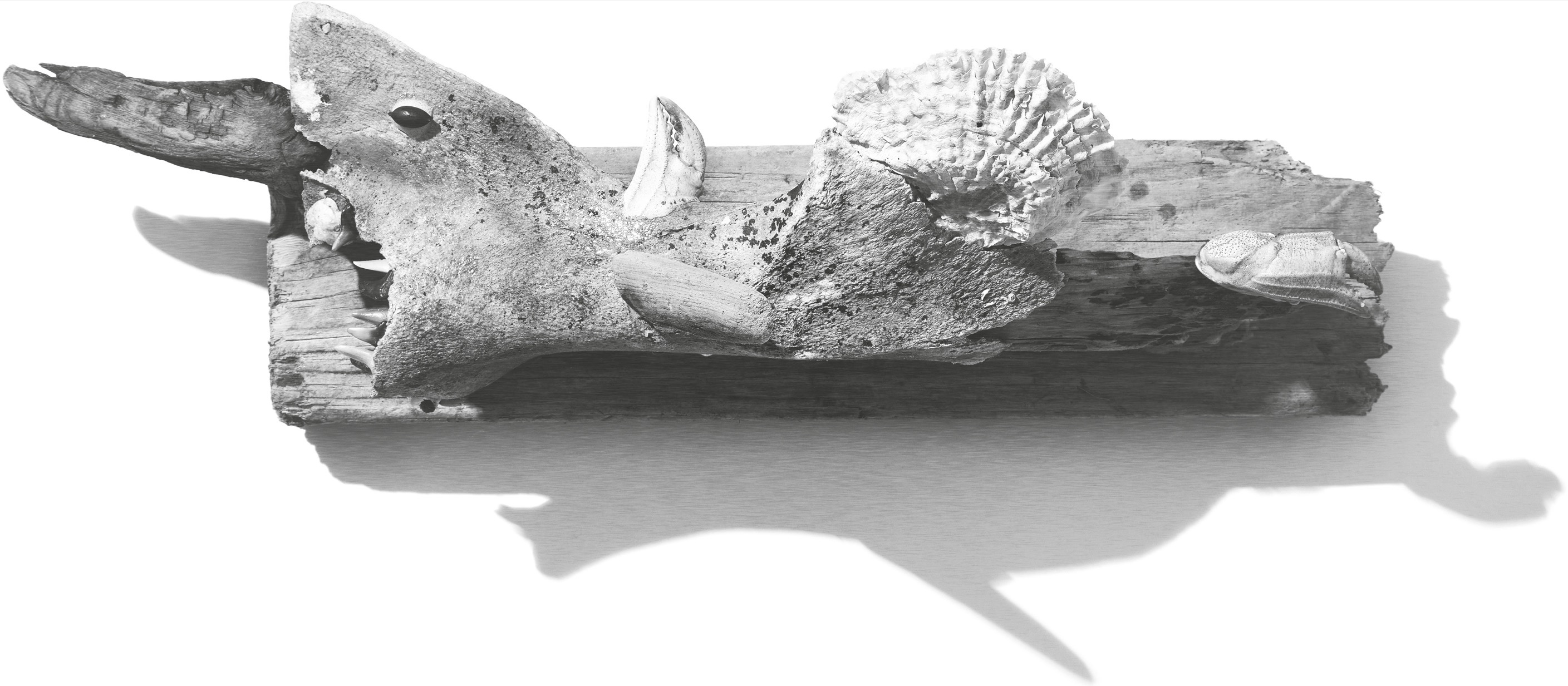9.
I want and fear the creature’s death. I mean my fish-house. How long may it live, and how long has it lived already? A thing cannot go on indefinitely. All life must end; there are rules that say so. Everything wears out. Shall I go first? That would be for the best.
Should my indifferent host predecease me, should that habitual thud of its heart muscle stop and horror silence flood in, what then should be my fortune? There would be a going down, a horrible final descent to the bottom of it all, the loneliest place that ever was: five hundred thousand thousand leagues under the sea. There, in a darkness that makes my daily darkness a midday brightness, my home would rot and rot and daily shrink about me. No post would come for me, and my address would slowly cease to be. Of course homes do slowly collapse everywhere on earth, you should not get too attached to them, that is true. But my home is alive, and if it dies I shall perish, too.
And then my son shall at last be safe.

But two crates left.
A requiem for Olivia Crabb.
Olivia’s old pelt is decaying on me. She is not nearly as much Olivia as she has been. Every day she turns into a caricature of herself. I do what I can. Soon she will have nothing in common with Olivia at all.
I have painted a small portrait of her on a clamshell. “For Olivia,” I cried at the shell. I painted her there with quiet dignity.

Olivia, alive; as you were in the best of days. What a nipper you were. I do not forget.
I have thrown away the rest. I do not care for it anymore.

I have made a likeness in candle wax. It is a small personality, trying to say something. It sits quite well atop some wood I dislodged from the galley ceiling.
I have made fires from bits of the Maria to save on candles; I have axed her here and there to get a little warmth. But each fire for me disturbs the shark some, and each means I have less home. And this home, the Maria, is missing more and more, and if I take too much, then all may collapse and be home no more.
My mind returns, though, to Otto. So: A bedtime story, of the kind I used to tell the wooden boy in the wooden bed. (No, I never, I only wish now that I had.) Listen then, dear boy, and help me with your good attention as I make amends.
By the time Otto had been moved to the attic, Mimo had grown into a young man. He was very big, the biggest in the town. He rarely went home anymore, but when he did call at home he always broke something—a vase, a bell jar, a terra-cotta bust. He had free roam of the house, his parents lacking the nerves to follow him, and always there was a little breakage and the house shook and then again with brief waves he was invited out again.
You will recall Otto, last we saw him, was living in the attic. Well, here is the problem. Suddenly, as they were sitting together in the front room, the parents felt a sharp wind hurtling at their bodies, and this wind was called Regret and it was also called Loneliness. The room had never felt quite right without Otto in it, as if it were missing an essential piece of furniture. How naked was the mantelpiece, how dolorous the end table. And then, you see, the biting wind.
There was a gagging in both parents, a simultaneous guttural groan. And this was the noise out of both of their throats:
“Ot!”
For Ot, Otty, Ottil, Ottifer, Ottibald they had called him, back when they dandled, and Ot now was the sound of their pain. Ot! they cried, like bellowing bovines in panic over their calf. And in concert did they ascend the stairs and knock upon the attic door. That door, which kept Ot out, was now opened to let Ot back in. But the parents could find no Ot in the attic, or in the house, or anywhere else, to be dusted and mantlepieced.
“I have not hugged my brother!” said massive Mimo. But no one had mentioned hugging, so why had he? And why was his face so red?
All around the town the parents went, hearing everywhere the sound of pottery breaking; the deaths of tureens and vases and jugs and mugs. They walked and fretted till they looked like broken receptacles themselves.
Police came and searched. They searched everywhere in town, every cupboard, kitchen, corner and understairs, attic and cellar, and in the rush they upset things, and here and there were breakages. But amid all that shattered crockery, not a single piece had been the milky flesh of Otto the Lost.
Suspecting that Mimo in all his great clumsiness was to blame, the people who ran the workhouse began to employ him less and less. There was an outbreak of theft, and this, too, was blamed upon Mimo. And so, in the end, out of love and loss and in the spirit of adventures that are found in books and not in life, Mimo, Massimo, set out to hold the world on his own. He was never seen in the town again. At length his parents forgave him and looked for him at the workhouse, but he was not there. So they sat in their house, childless again, and talked of children. And every time they drank tea, each time they sat before a plate, they missed Otto with sharp pains. Until the very thought of cups and plates and food made them ill, and they ate less and ever less, until they were dead.



